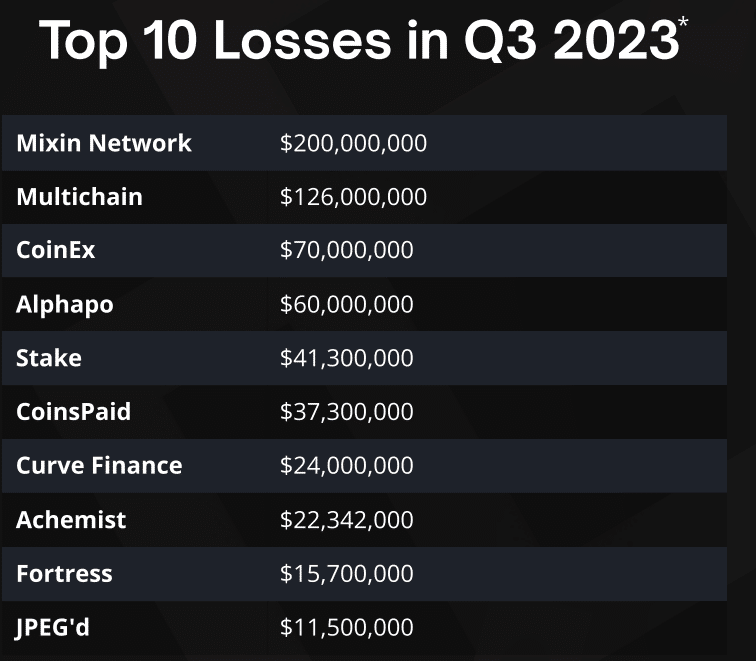Web3, based on blockchain technology and decentralized networks, promises a paradigm shift from traditional centralized systems. It offers users unparalleled transparency, security, and control, making it an attractive option for various applications such as finance, gaming, and social networking.
However, as the ecosystem grows, so do the challenges, particularly regarding security. Web3 has experienced a dramatic surge in cyber threats during the third quarter of 2023.
According to BitcoinCasinos.com, incidents of hacks and fraud within the Web3 space increased by almost 59.9% compared to last year. This was a staggering $685.7 million going up in digital smoke.
BitcoinCasinos’ crypto expert Edith Reads commented on the data, “This alarming rise raises concerns about the security of decentralized technologies and the need for stronger measures to safeguard users and investors in the rapidly evolving digital landscape.”
Alarming Surge in Hacks and Fraud
Mixin Network, the digital asset transactional powerhouse, and Multichain, the cross-chain router hero, bled a staggering $200 million and $126 million, respectively. These colossal losses accounted for 47.5% of the season’s total casualties.
In the epic clash between Decentralized Finance (DeFi) and Centralized Finance (CeFi), DeFi stood as the preferred battleground, facing 72.9% of successful onslaughts, while CeFi fought valiantly at 27.1%.
Challenges and Solutions
The decentralized nature of Web3 poses unique challenges in combating cyber threats. Traditional cybersecurity models struggle to address these issues, requiring innovative approaches:
Improved Code Auditing: Rigorous auditing of smart contracts and DApps can identify vulnerabilities before exploiting them.
Decentralized Identity Solutions: Implementing decentralized identity and authentication mechanisms can mitigate phishing attacks by ensuring secure user verification.
Enhanced Education: Educating users about the risks associated with Web3 and providing guidelines on secure practices is crucial in preventing fraud.
Oracle Security: Developing more secure oracle solutions and validating data sources can prevent the manipulation of critical information.
Regulatory Measures: Governments and regulatory bodies must collaborate with the industry to establish guidelines and standards that protect users without stifling innovation.
The surge in hacks and fraud within the Web3 ecosystem during Q3 2023 serves as a wake-up call for the industry. Addressing these security challenges is paramount as the world transitions towards decentralized technologies.
By fostering collaboration between developers, regulators, and users, the Web3 community can fortify its defences, ensuring a safer and more secure digital future for all. Vigilance, education, and innovative solutions will be key in navigating the evolving landscape of decentralized technologies and securing the promise of Web3 for generations to come.

